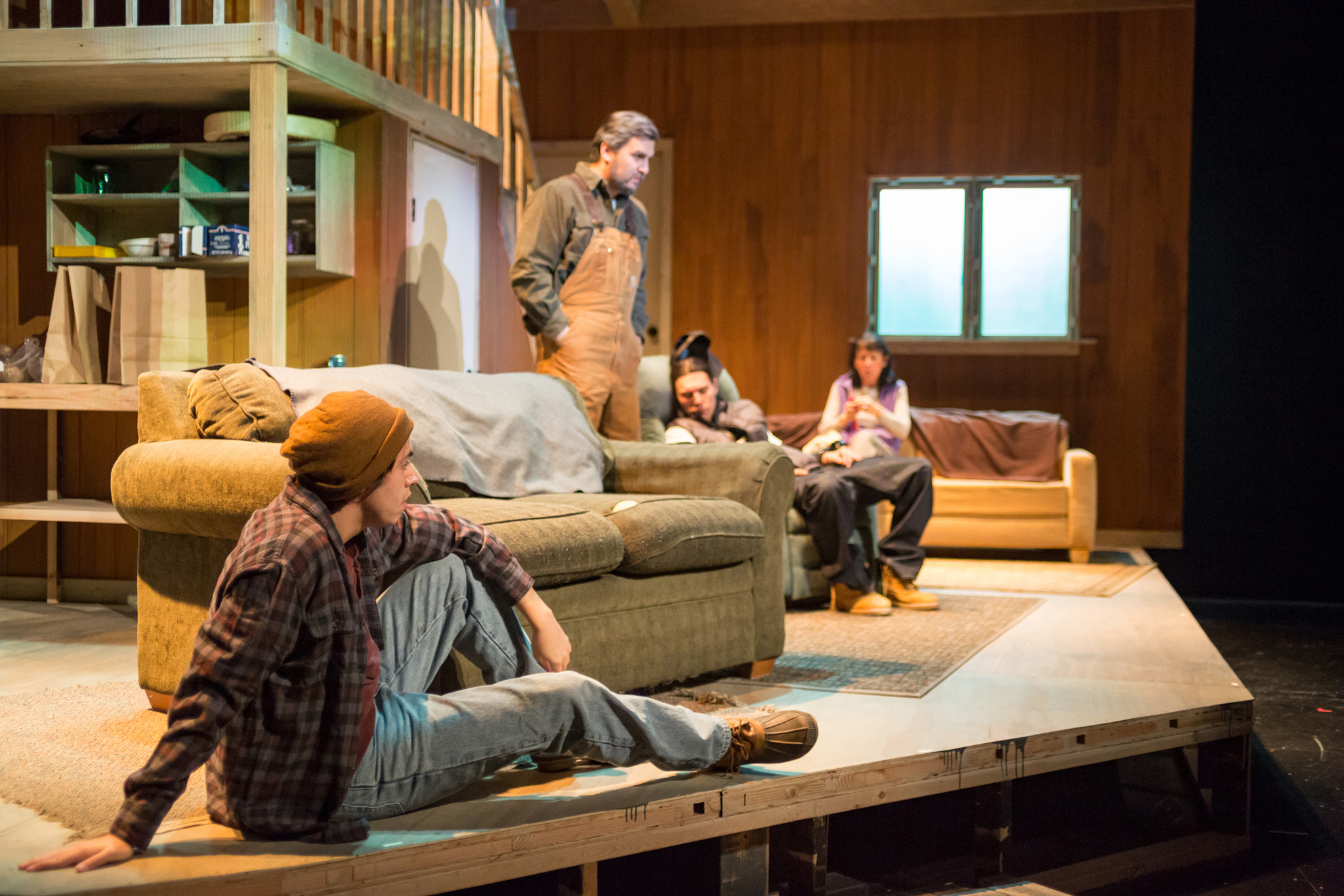When I was about 6 or7, my paternal grandfather — who, as a Jewish kid growing up in a predominately Irish neighborhood in 1930s New York, got jumped every day walking to and from school — told me to punch him in the shoulder as hard as I could.
So I did … and he responded by leveling a fist that momentarily disrupted feeling in my arm.
“Now, what did you learn?” he asked rhetorically.
Grandpa’s meaning was two-fold: 1) be careful who you throw punches at, even your own grandfather; and 2) return the punch when someone throws one at you, even your own grandson.
Now, I don’t necessarily agree with everything my grandfather said or did — around the same age, he also let me try his Scotch and take a puff of his pipe — but that particular message always stuck with me.
I was reminded of this gruff little “life lesson” about 10 minutes into Perseverance Theatre’s latest offering, “They Don’t Talk Back,” by local playwright Frank Henry Kaash Katasse, whose debut play in large measure revolves around a grandfather’s punch and a grandson’s response.
[‘They Don’t Talk Back’ comes home]
“They Don’t Talk Back” tells the story of a troubled teen from a broken home in the “big city” — in this case Juneau — sent to spend a summer living and working with his grandparents and cousin in a small, unspecified Tlingit fishing village. While billed as a coming-of-age story, really, it’s more of a coming-to-terms with age story, as three generations grapple with questions of family, cultural heritage and mortality.
If this sounds heavy, well, it is — especially in the play’s second act. But Katasse has an excellent ear for humor, and he delivers plenty of laughs, even in the saddest moments. This effect is kind of like the theatrical equivalent of salted caramel, a complicated recipe for a first-time playwright; quite honestly, Katasse nails it.
Of course, the play benefits from a very strong creative team. Ed Littlefield’s original musical compositions, John Nobori’s sound design — especially the rain, which, as anyone who lives in Southeast Alaska will attest, can be both relentless and beautiful — and production designer Tom Ontiveros’ visual collages deepen the cultural flavor without overpowering it.
Under the crisp direction of Randy Reinholz, an enrolled member of the Choctaw Nation of Oklahoma, the entire cast shines — with at least one monologue per character, Katasse’s script virtually ensures it.
Tlingit actor, writer and musician Skyler Ray-Benson Davis plays the disaffected Nick, an Alaska Native in hip-hopper’s clothing. A little taste of his Tlingit-infused “rhymes”: “Here’s to good weather and fishin’/just a thought, thanks for listenin’.”
Kholan Studi lights up the stage as Nick’s ever-amiable cousin Eddie, also from a broken home, but way better adjusted — at least to village life. And Brian Pagaq Wescott (Athabascan/Yup’ik) offers a nimble performance as Nick’s itinerant father, an unstable Iraq War vet who shows up and takes off again.
But in many ways, the play belongs to the grandparents, Paul (Jake Waid) and Linda (Diane E. Benson). Waid is simultaneously tough and loving, funny and angry, tired and tireless. Much like my own grandfather, he’s also prone to throaty exclamations, only his are in Tlingit, which, I have to say, bears a surprising resemblance to Yiddish. For her part Benson is sweet, sunny and wonderful as Linda (which, no lie, was my grandmother’s name). I found their touching portrayal of a loving, elderly couple among the play’s most enduring aspects.
That’s not to call “They Don’t Talk Back” perfect. Consisting of two beefy acts, I found it a bit long, with perhaps one or two plot elements too many. And yes, the play does occasionally veer into melodrama. But there’s a fine line between the dramatic and melodramatic, and it’s not always clear, even to seasoned playwrights, let alone a first-timer. If Katasse occasionally strides into afterschool special territory, I, for one, am inclined to give him a pass — just this once.
More than anything, though, I left “They Don’t Talk Back” grappling with my own questions about my own family, cultural heritage and mortality. And that, my friends, is the essence of art: finding the universal in the specific, and the specific in the universal.
Man, I can’t wait to impart that little truism to my grandson one day; rest assured, I’ll do it without resorting to fisticuffs.
• Geoff Kirsch writes from Juneau. Read more at www.geoffkirsch.com.

